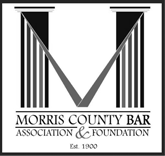Morris County Workers’ Compensation Lawyers
What Types of Workers’ Compensation Injuries are there?
Workers’ compensation injuries can vary widely, ranging from acute injuries resulting from accidents to chronic conditions that develop over time due to repetitive motions or exposure to harmful substances.
Here are some common types of workman’s compensation injuries that Nusbaum and Stein handles:
Traumatic Injuries: These are sudden and often severe injuries that result from accidents or incidents at the workplace. Examples include fractures, dislocations, sprains, strains, and contusions caused by falls, collisions, or machinery accidents.
Repetitive Strain Injuries (RSI): Conditions such as carpal tunnel syndrome, tendonitis, and bursitis can develop over time due to repetitive motions, prolonged use of vibrating tools, or maintaining awkward positions for extended periods.
Back Injuries: Injuries to the back can occur from lifting heavy objects, improper lifting techniques, or repetitive bending and twisting. Conditions like herniated discs, strains, and sprains are common in industries requiring physical labor.
Occupational Diseases: Exposure to harmful substances or conditions in the workplace can lead to occupational diseases. Examples include respiratory conditions (e.g., asbestos-related diseases), skin disorders, or illnesses caused by exposure to toxic chemicals.
Burn Injuries: Workers in certain industries, such as manufacturing or the restaurant industry, may be at risk of burn injuries. These can result from exposure to hot surfaces, chemicals, or flames.
Electrical Injuries: Electricians and workers in industries with electrical equipment may suffer injuries due to electrical shocks. These injuries can range from minor shocks to severe burns and organ damage.
Eye Injuries: Workers in various industries may be at risk of eye injuries due to exposure to chemicals, flying debris, or other hazards. Protective eyewear is crucial to prevent such injuries.
Slip and Fall Injuries: Falls in the workplace can lead to various injuries, including fractures, sprains, and head injuries. Wet or slippery surfaces, uneven floors, or inadequate lighting can contribute to these accidents.
Crush Injuries: Workers in industries involving heavy machinery or equipment may face the risk of crush injuries. This can occur when body parts get caught between two objects or when a heavy object falls on a worker.
Mental Health Conditions: While not always recognized in every jurisdiction, work-related stress, anxiety, depression, and post-traumatic stress disorder (PTSD) can be considered compensable injuries in some cases.


What Types of Workers’ Compensation Cases are there?
Workers’ compensation cases typically involve injuries or illnesses that occur in the workplace or are directly related to employment.
Here are some common types of workmans’ compensation cases:
Workplace Accidents: Injuries resulting from accidents at the workplace, such as slips, falls, or machinery accidents, are common workers’ compensation cases. This can include construction accidents, falls from heights, or injuries caused by falling objects.
Occupational Diseases: Some workers may develop diseases or illnesses due to exposure to harmful substances in the workplace. Examples include respiratory conditions from exposure to asbestos or occupational skin diseases.
Repetitive Strain Injuries (RSI): Workers who perform repetitive tasks may develop RSIs, such as carpal tunnel syndrome or tendonitis. These injuries can result from continuous, repetitive motions over an extended period.
Back Injuries: Employees in physically demanding jobs may suffer back injuries due to lifting heavy objects, improper ergonomics, or accidents. These injuries can range from strains and sprains to more severe conditions like herniated discs.
Construction Accidents: Construction workers face specific risks, including falls from scaffolding, accidents involving heavy machinery, and electrical injuries. Workers’ compensation can cover injuries sustained on construction sites.
Slip and Fall Injuries: Similar to personal injury cases, slip and fall injuries in the workplace can be covered by workers’ compensation. This includes injuries resulting from wet floors, uneven surfaces, or other hazardous conditions.
Assaults or Violence: Workers who are victims of workplace violence may be eligible for workers’ compensation benefits. This can include injuries sustained during a physical altercation with a coworker or a third party.
Injuries During Commute: In some cases, injuries that occur during a commute to or from work may be covered if the employee is engaged in work-related activities or is on a business trip.
Mental Health Issues: Some jurisdictions recognize mental health conditions caused by work-related stress or trauma as eligible for workers’ compensation benefits. This can include conditions like anxiety, depression, or post-traumatic stress disorder (PTSD).
Fatal Accidents: In the unfortunate event of a workplace fatality, workers’ compensation may provide death benefits to the surviving dependents, covering funeral expenses and providing financial support.
It’s essential for workers to report workplace injuries promptly and seek medical attention. Employers are generally required to carry workers’ comp insurance, and employees may be entitled to benefits regardless of fault. Consulting with a workmans’ compensation attorney can help navigate the process and ensure that injured workers receive the appropriate benefits.
Call Nusbaum Stein for a Free consultation and find out if you have a workers’ compensation case at 908-356-0404.


What Types of Workers’ Compensation Laws are unique to the State of New Jersey?
Workers’ compensation laws can vary from state to state, including the state of New Jersey. While the basic principles of workers’ compensation are generally consistent across the United States, there are specific regulations and provisions that are unique to New Jersey.
Exclusive Remedy: Similar to other states, workers’ compensation in New Jersey is often considered the exclusive remedy for employees injured on the job. This means that in most cases, employees cannot sue their employers for negligence and must rely on workers’ compensation benefits.
Compensable Injuries: Injuries or illnesses are generally compensable under New Jersey’s workers’ compensation laws if they arise out of and in the course of employment. This includes not only physical injuries but also occupational diseases and mental health conditions caused by work-related factors.
Medical Benefits: Injured workers in New Jersey are entitled to reasonable and necessary medical treatment related to their work injuries. The employer or their workers’ compensation insurance carrier typically covers these medical expenses.
Temporary Disability Benefits: Workers who are temporarily unable to work due to a job-related injury may be eligible for temporary disability benefits. These benefits provide partial wage replacement during the period of disability.
Permanent Disability Benefits: If a worker sustains a permanent impairment as a result of a work-related injury, they may be eligible for permanent disability benefits. The amount is determined based on the degree of permanent impairment and other factors.
Vocational Rehabilitation: In cases where an injured worker is unable to return to their previous job, New Jersey workers’ compensation law may provide vocational rehabilitation services to help the employee re-enter the workforce in a suitable capacity.
Statute of Limitations: There are time limits for filing workers’ compensation claims in New Jersey. Injured workers generally have two years from the date of the injury or from the date they become aware of the connection between the injury and their employment to file a claim.
Death Benefits: In the unfortunate event of a work-related death, New Jersey provides death benefits to dependents, including funeral expenses and financial support.
Second Injury Fund: New Jersey has a Second Injury Fund, which provides additional benefits to workers who had pre-existing disabilities or conditions before a work-related injury. This fund helps ensure that employers are not unfairly burdened by pre-existing conditions when compensating for a new work-related injury.
Call Nusbaum Stein to find out if you have a workers’ compensation case at 908-356-0404.




